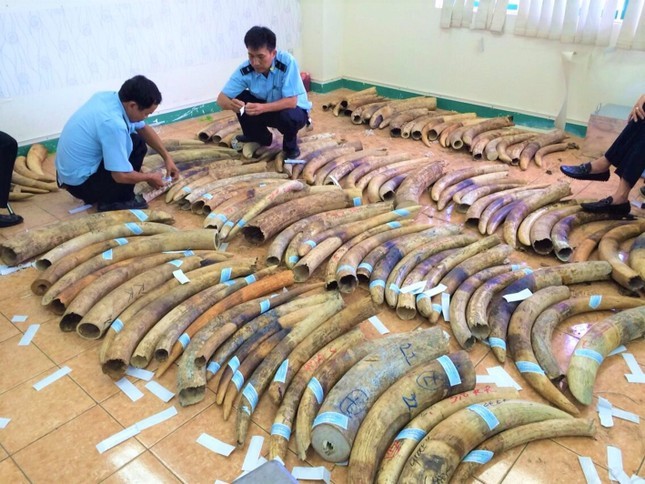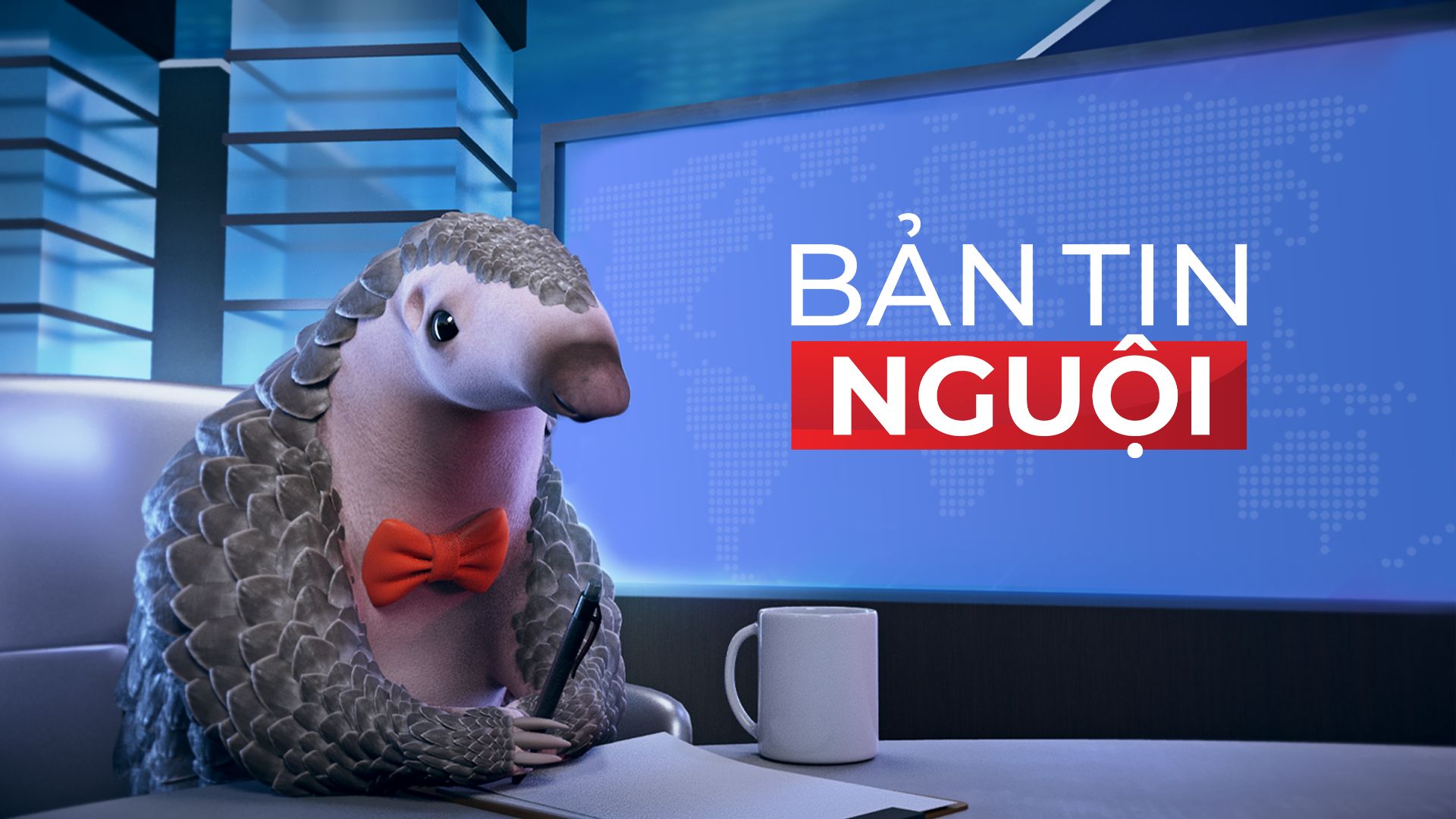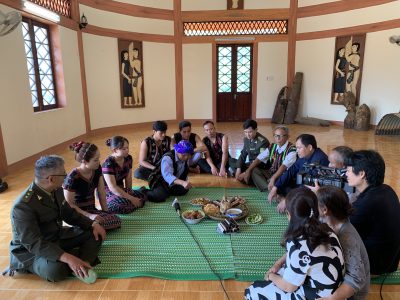SMUGGLED IVORY DOMINATES THE VIETNAMESE MARKET
According to conservation organizations, Vietnam is a supply nation, a biggest market for wild animal consumption and transportation, including ivory. This explains why, while many areas do not have elephants, these types of prohibited commodities are routinely sold.
“Purchase it before it’s gone”
We were wandering about Pleiku city one morning in June when we came upon a souvenir shop offering all types of Central Highlands things. When you step inside, you’ll find a variety of delicious and unusual Basalt red land things for sale, such as: 1-day dried beef, wine, coffee…
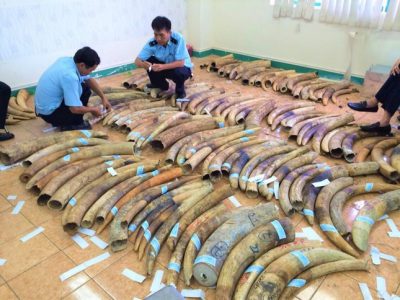
Da Nang confiscates ivory exhibition – Picture courtesy of the Institute of Ecology and Biological Resources
We noticed many rings of milky white like ivory in the center of such a particular forest. “It’s plastic, who dares to make it public?” joked the shopkeeper.
I was taken aback when I realized there were elephants here who claimed to be genuine. All African stuff, the hostess said plainly. Having stated so, she grabbed a ring from the bag full of rings, ivory rings, and elephant tail feathers and confirmed that they were all authentic. Moreover, she showed us a 13mm thick ivory bracelet priced 20 million VND which mot of the customers bought as a gift.
The hostess went on to say that real items put on the body for a time will turn yellow and reveal extremely lovely lines. There is one more expensive and uncommon form called ivory blood, when lighted, you will notice tiny veins like blood arteries.
“You should purchase it, when there’s no elephant left, you won’t be able to buy them even if you have a lot of money,” she said, referring to the tragedy of African and Asian elephants being hunted and murdered for their tusks.
Just as we were about to depart, the hostess pulled out a kilogram of monolithic ivory from a strange box. She has had this ivory from Africa for many years. Because this is a treasure, she does not sell it, even if many people offer hundreds of millions of dong. She constructed a full box to keep it in so that not all of the guests could see it.
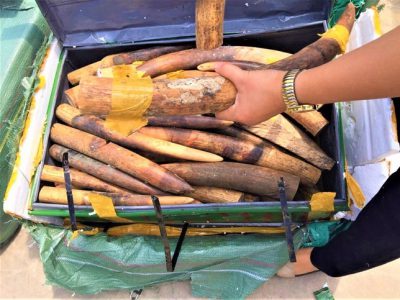
At Noi Bai, Hanoi, ivory displays were confiscated. Photo: General Department of Customs
We continued to explore several goldsmith’s stores in the mountain town of Pleiku and discovered that the majority of them offered jewelry made from elephant tail hair, ivory, elephant bones, and various animal fangs and claws. Due to superb craftsmanship and silver and gold plating, these goods glitter and dazzle. Because Gia Lai lacks elephants, the owners here offer items from Africa or Cambodia.
We continued to set foot in Kon Tum, a region in the North Central Highlands, and documented various tourist sites, as well as souvenir stores selling things that have been proven to be produced from ivory. The party of reporters witnessed stores selling various types of ivory earrings, rings, hairpins, and pendants on Nguyen Hue Street (Kon Tum City). The owner stated that these products were obtained from a street vendor specialist.
The dealer will contact ahead of time to inquire about the quantity of each item to be taken. They then came by to deliver supplies to him and then hurried away without waiting for long. Their transactions are likewise lightning quick, and they are unconcerned with trader information.
The shopkeeper is also aware that the products are prohibited, therefore he only imports enough to sell in 1-2 months. His clientele are likewise diversified; in addition to consumers who purchase directly from the business, he also ships to the provinces of Son La, Thai Nguyen, and Hanoi. When we asked for a business link, the shop owner shook his head and declared “top secret,” refusing to give us the phone number of the dealer.
For the past seven years, a lady named B. has been selling products disguised as ivory in the Mang Den tourism area (Kon Plong district, Kon Tum), directly on Notre Dame hill. This individual also offers rings, bracelets, bangles, and elephant tails, although the prices are greater than in other locations. The little ivory Pi Xiu, for example, costs 500,000 VND per head. If you buy two, you will receive a 400,000 VND discount each one.
“Dreadful commodities” in the golden capital
We got the opportunity to touch, feel, and witness hundreds of jewelry items that were introduced and fashioned entirely from Ivory throughout the course of nearly ten days of touring tourist sites, jewelry stores, souvenir stalls, and so on. But, while discussing the amount of exposure and willingness to play to raise illegal items, it is hard to ignore the golden capital of Phuoc Son (Quang Nam).
We were taken aback when prohibited commodities were openly marketed in a souvenir and gem shop in Kham Duc town (Phuoc Son).
Animal claws (bears, tigers, boars…), rings, bracelets, pendants, pens… are all meticulously molded and covered in brilliant gold and silver, giving everyone a profound appearance. adoring and murmuring. The price of a little fang introduced from ivory is almost 1 million dong. The prices for large things coated with gold and silver varied from a few million to tens of millions of dong.
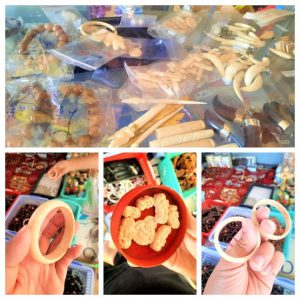
The displayed items are ivory-guaranteed in Gia Lai and Kon Tum.
The store owner is a young man who claims that everything is fashioned from genuine African ivory. This individual also demonstrates how to discern the genuine product by holding it up to the light, where the checkered lines are plainly visible; at the same time, it is disclosed that the products were imported from a dealer. He bought a full pair of tusks weighing 5-7kg for more than 40 million VND/kg each time, then gave it to craftsmen to grind into jewelry and wrap it in gold and silver to increase the product’s worth.
After the goods are done, this individual will put them on display for public sale. When asked where the processing took place, the young boss muttered that it had to be sent to a secret location, otherwise, the police will cease. This individual also revealed several other methods for bringing items from Africa, such as camouflaging through wooden carts and putting inside porcelain vases…
While transporting things, this individual frequently drives a passenger automobile and employs several methods to avoid detection by authorities. If clients from outside the province have needs, the business owner is willing to send them there via the bus system.
According to the proprietor, many individuals purchased ivory things at the business. Some VIP clients purchase several hundred dollars as a gift each time. This individual commits to pay five times the amount if proved to be a forgery.
According to Ms. Bui Thi Ha, Deputy Director, Policy and Law Program, Education Center for Nature (ENV – a wildlife advocacy group), Vietnam is regarded as a global supplier, market for consumption, and transshipment of wildlife (including ivory).
The number of infractions is growing at an alarming rate, according to ENV statistics. In 2019, there were 1,901 incidents of wildlife infractions; by 2021, the number of violations had increased to 3,703 cases. Authorities discovered 808 instances with 1,631 infractions in the first quarter of 2022. In 2021, the entire country found 575 incidents with 1,580 infractions, mostly for ivory.
Dak Lak is a hub for the trading in ivory and animal items. A brief study conducted by ENV towards the end of January 2022 revealed that 26/49 of the investigated places (gold and silver shops, fine art stores, souvenir shops, hotels, restaurants) sold objects crafted from ivory, elephant bones, elephant tail feathers, tiger claws, bear claws, etc.
Many individuals, according to ENV, believe that only real ivory or ivory goods should be prohibited from sale. 75% of respondents believe that having ivory items is not prohibited since they have never seen someone punished or jailed for owning or wearing ivory products.
Local people, according to ENV, feel that the trafficking and usage of ivory from African elephants is not a source for worry because it is unrelated to domestic elephants in Dak Lak.
On June 22, the Investigative Police Agency of the Da Nang City Police prosecuted and detained Nguyen Duc Tai (SN 1989, temporarily residing in Khue Trung ward, Cam Le district) to investigate the act of “violating regulations.” on the conservation of endangered and unique animals. Priorly, in 2021, the Da Nang City Police identified a gang of persons who appeared to be smuggling and illegally importing wild animals from all across the country. These gang of people set up “ghost” firms to transport animal items and disguised themselves as importers of African hardwood floors and cashew nuts. The entire weight of the exhibits recovered from the case was roughly 139kg of rhino horn; 3,108kg of lion bones; 457kg of ivory; and 6,232kg of pangolin scales, which the authorities valued at 300 billion VND.
Source: Tien Phong news

